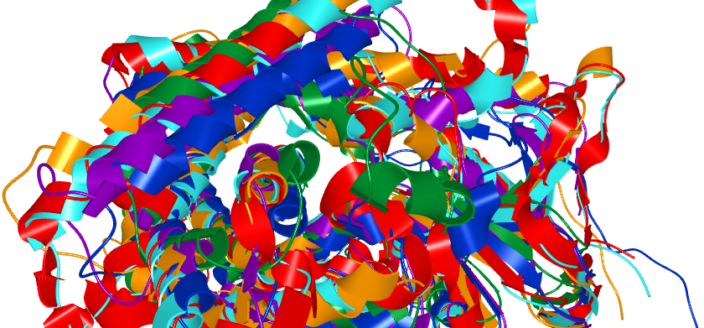Comparative Visualization of Protein Secondary Structures

Abstract
Protein function is determined by many factors, namely by its constitution, spatial arrangement, and dynamic behaviour. Studying these factors helps the biochemists and biologists to better understand the protein behaviour and to design proteins with modified properties. One of the most common approaches to these studies is to compare the protein structure with other molecules and to reveal similarities and differences in their polypeptide chains. The algorithm described in [1] supports the comparison process by proposing a new visualization technique that bridges the gap between traditionally used 1D and 3D representations. By introducing the information about mutual positions of protein chains into the 1D sequential representation the users are able to observe the spatial differences between the proteins without any occlusion commonly present in 3D view.
Context
This project is part of an ongoing research collaboration between the Masaryk University in Brno, Czech Republic. This thesis project is a follow-up to the research described in a paper [1].
Assignment
In this project, you will reimplement the described algorithm in JavaScript using D3 (https://d3js.org/). Additionally, you will set up a working web server where the tool can run. The partially working source code used in the paper is available as a reference.
Requirements
Good programming skills and familiarity with JavaScript and D3 are an advantage. No biology background is required.
References
- [1] Kocincova et al. “Comparative Visualization of Protein Secondary Structures” BMC Bioinformatics.
http://www.ii.uib.no/vis/publications/publication/2016/Lucia2016Comparative
Suitability
- INF219 & INF319
Contact
For more information please contact Jan Byška (jan.byska@gmail.com).
